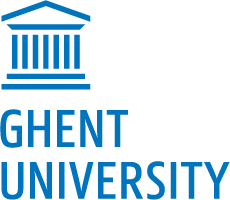
UGent: Sustainable Materials Science
University of Ghent
General expertise of the research group
The research group Sustainable Materials Science is part of the Department of Materials, Textiles and Chemical Engineering (MaTCh) and has a large amount of experimental and characterization facilities at its disposal. Experimental work is complemented with simulations and modelling efforts. Main research expertise is the study of the interaction of metallic materials with hydrogen and how hydrogen impacts the performance of these metals. Apart the work on hydrogen induced degradation, the groups also study the degradation of metals resulting from interaction with their environment (corrosion processes) and high-temperature metallurgical processes (pyrometallurgy)
Specific hydrogen- related expertise & research topics
- The research group has internationally recognized expertise in generating high impact research based on developing experimental methodologies related to hydrogen embrittlement which are going beyond the state-of-the-art. The strategy is to design innovative experimental set-ups e.g. by combining different sets of equipment, while keeping in mind the very specific nature of hydrogen/microstructure interaction such as the low hydrogen solubility and high hydrogen diffusivity in BCC-steel, whereas hydrogen has a high solubility and low diffusivity in FCC-alloys.
- For the moment 10 PhD students and two postdocs are working on hydrogen related research topics. Specific research topics are focusing on the interaction of hydrogen with amongst others wire steels, pipeline steels, bearings, additive manufactured alloys, titanium, tungsten, duplex stainless steels, austenitic stainless steel, automotive steel grades (first, second and third generation advanced high strength steels). Both fundamental and application-oriented aspects are highlighted.
- The group has a vast amount of knowledge on high-end material characterization techniques, alloy development and offers an in-depth understanding and expertise on all metallurgical phenomena.
Available equipment/tools:
- Thermal desorption spectroscopy
- Various equipment and set-ups for electrochemical hydrogen charging and gaseous hydrogen charging via autoclaves
- Electrochemical hydrogen permeation, incl. applying mechanical load during permeation test demonstrating effect of mechanical load on hydrogen diffusion coefficient • diffusion based models
- Hot and melt extraction to determine hydrogen content of metal Table of contents
- Various set-ups for in-situ mechanical tests (performing mechanical test while material remains in contact with hydrogen environment). Tests include slow strain rate tensile tests, constant load tests, bending tests, single edge notch tensile tests
- Advanced microstructural characterization tools (e.g. for crack initiation and propagation, phase transformation, role of hydrogen on deformation mechanism, identification of hydrides) such as scanning electron microscopy, transmission electron microscopy, electron backscatter diffraction,
- Micro-tensile device inside scanning electron microscopy
Participating in FL/B/EU funded projects with H2 related research
- For the moment, 10 PhD students and 2 postdocs are working on hydrogen related research. Topics include the interaction of hydrogen with amongst others pipeline steels, bearing steels, additive manufactured alloys, titanium, wire steels, duplex stainless steels, austenitic stainless steel, automotive steel grades (first, second and third generation advanced high strength steels).
- This work is funded by a wide variety of funding schemes including FWO, SIM, UGent, Vlaio and EU fundingresearch.ugent.be
International collaborations
- The group is involved in multiple international collaborations with academic partners and research institutes. Demonstrated examples are found in joint work with among others colleagues from
- NTNU (Norway)
- MCL Leoben (Austria)
- TU Graz (Austria)
- University of Queensland (Australia)
- Ecole des Mines Saint-Etienne (France)
- Paristech (France)
- TUEindhoven (The Netherlands)
- RWTH Aachen (Germany)
- Max-Planck Institute fur Eisenforschung (Germany)
- Curtin University (Australia)
- Kyushu University (Japan),..
- Multiple collaborations are ongoing with international industrial partners. Due to NDA’s, names can however not be revealed.
Main relevant publications
- Via the following links for more info as the research group as over 100 relevant papers:
- The potential of the internal friction technique to evaluate the role of vacancies and dislocations in the hydrogen embrittlement of steels, L Vandewalle, M Konstantinovic, T. Depover, K. Verbeken, Steel Research International, 2021, 2100037
- EBSD characterization of hydrogen induced blisters and internal cracks in TRIP-assisted steel, A Laureys, M. Pinson, T. Depover, R. Petrov, K. Verbeken, Materials Characterization, 159, 2020, 110029
- Critical assessment of the evaluation of thermal desorption spectroscopy data for duplex stainless steels: a combined experimental and numerical approach, L Claeys, V Cnockaert, T. Depover, I. De Graeve, K. Verbeken, Acta Materialia, 186, 2020, 190-198
- Microstructural based hydrogen diffusion and trapping models applied to Fe-C-X alloys, A Drexler, T. Depover, S Leitner, K. Verbeken, W Ecker, Journal of alloys and compounds, 826, 2020, 154057
- Qualification of the in-situ bending technique towards the evaluation of the hydrogen induced fracture mechanism of martensitic Fe-C steels, M Pinson, T. Depover, H. Springer, K. Verbeken, Materials Science and Engineering A, 792, 2020, 139754
- The detrimental effect of hydrogen at dislocations on the hydrogen embrittlement susceptibility of Fe-C-X alloys: an experimental proof of the HELP mechanism, T. Depover, K. Verbeken, International Journal of Hydrogen Energy, 43, 2018, 3050-3061
- Understanding the interaction between a steel microstructure and hydrogen, T. Depover, A Laureys, D. Perez Escobar, E. Vanden Eeckhout, E Wallaert, K. Verbeken, Materials, 11, 2018; 698 Table of contents
- Effect of deformation and charging conditions on crack and blister formation during electrochemical hydrogen charging, A Laureys, E Van den Eeckhout, R Petrov, K Verbeken, Acta Materialia, 127, 2017, 192-202
- Fractographic analysis of the role of hydrogen diffusion on the hydrogen embrittlement susceptibility of DP steel, T. Depover, E. Wallaert; K. Verbeken, Materials Science and Engineering A, 649, 2016, 201-208
- The effect of TiC on the hydrogen induced ductility loss and trapping behavior of Fe-C-Ti alloys, T. Depover; K. Verbeken, Corrosion Science, 112, 2016, 308-326,
Contact persons
Prof. Kim Verbeken
Kim.Verbeken@ugent.be
Prof. Tom Depover
Tom.Depover@ugent.be
University of Ghent • Sustainable Materials Science
